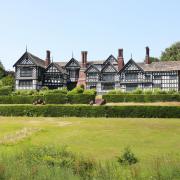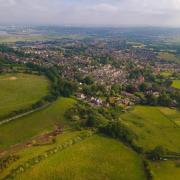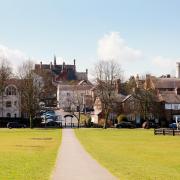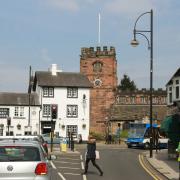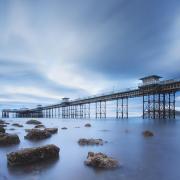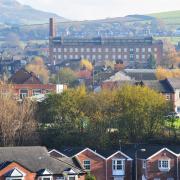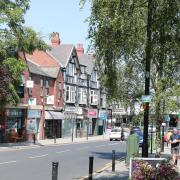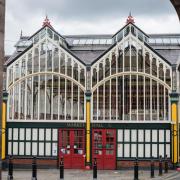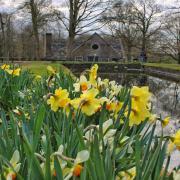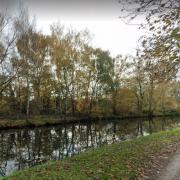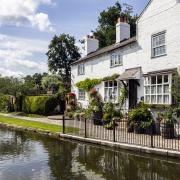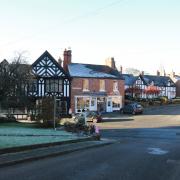Sale and Altrincham are neighbouring Cheshire towns that are distinctly different, but both have so much to offer
It was the Romans who put Altrincham and Sale on the map – but they probably never knew it.
For the prosperous neighbouring towns are linked by the road that the legions built between Chester and Manchester – now the busy A56 trunk road. Though neither settlement appears in the Domesday Book collated by William the Conqueror’s tax men, there is plenty of evidence that Altrincham, ‘homestead of Aldhere’s people’ and Sale, thought to be derived from the Anglo Saxon sealh, a willow, meaning ‘the place where the willows grew’, existed before the arrival of the Normans.
History has linked the two towns for the last 800 years. A 12th Century land deed refers to the ‘township of Sale’ and, at the request of its lord of the manor, Hamon de Massey, Altrincham was granted a Charter to hold a market by King Edward I in 1290. It would be logical to suppose that crops and livestock raised on the rich, fertile farmland around Sale and Ashton-on-Mersey was brought to market in Altrincham.
More recently links between the two towns were dramatically strengthened – first in 1765 by the Bridgewater Canal that triggered the rise of industry in Broadheath area and then in the middle of the 19th Century by the arrival of the railway, transforming Altrincham and Sale into thriving commuter towns. That rail route is now the domain of Metrolink trams.
During the last decade, Altrincham and Sale have also shared common difficulties, notably the decline of their respective high streets, compounded by the deepest recession since the 1930s. Yet there are positive regenerative initiatives afoot, a growing sense of community awareness and vision and refreshing optimism about the future.
In both towns there is much to build upon. Described by the Sunday Times as one of the best places to live in Britain for schools with good transport links and an appealing array of bars and restaurants, (the borough of Trafford retained its grammar schools in which places are in huge demand), Altrincham launched a public-private sector regeneration partnership that is beginning to make real progress with shop vacancy rates already down.
The initiative, Altrincham Forward, set up its headquarters in Shaws Road in May, appointed Paul Armstrong as town centre manager in the summer and within days launched ‘Altrincham Originals’, a campaign promoting the town’s independent businesses. It is designed to celebrate the shops, bars and restaurants that are original to Altrincham – some well established and some very new.
Mr Armstrong said: ‘Together they make living here a unique experience and we should all use them. The rising costs of travel gives an incentive to shop closer to home and independent businesses can be significant in reinvigorating our high streets by encouraging communities to spend locally. It’s better for the environment too.’
Crucial to the regeneration of the town centre will be the development of a new £13m general hospital in Railway Street on a site occupied by long-empty shops. The scheme, given the go ahead earlier this year, will enable the conversion of the old Victorian hospital in Market Street into the town’s new library with retail shops on the ground floor – part of the £15m public realm improvements in Altrincham’s ‘Market Quarter’.
Altrincham Forward, whose stakeholders include local traders, residents, major North West businesses; Altrincham and Sale Chamber of Commerce and Altrincham and Bowdon Civic Society alongside Trafford Council, has also striven to make its offices a one-stop focal point and features exhibition space for community use.
This autumn saw local artist Alan Hawkins – famous for his portrait of Market Dave – exhibiting works depicting Altrincham People and Places in the gallery space. During the exhibition, Alan not only showcased his fantastic work but painted in the gallery each day, so visitors could watch the artist at work and pick up a few hints and tips while admiring his other portraits.
Alan had a number of Altrincham portraits on display, including: Market Dave, Eric – also known as Eric the Viking, and other paintings, including Lillies, Denzel Gardens, the three Altrincham Clocks, and two paintings of other Altrincham’s landmarks for people to try to identify.
Altrincham boasts a number of sporting institutions including its perennial giant-killing football club best known by its nickname of the Robins and keen skaters from far and wide are drawn to Altrincham’s Silver Blades Ice Dome. One of the more unusual – but still very popular - is Altrincham Rifle and Pistol Club, dedicated to the Olympic sport of target shooting.
The club offers several shooting disciplines, caters for a wide range of abilities and boasts two indoor ranges. Stuart Purkiss, who joined the club shortly after returning to the UK from Canada in 1973, said: “Like any sport shooting is a challenge. It’s trying to get that bullet, or in the case on an air gun, that pellet, as close as you possibly can to the centre of a target.
‘To be good at shooting, and some of our 70 or so members are very good, requires concentration, patience and dedicated practice,’ he added. The club, thought to have been founded before 1940 – a certificate dating from that year from what was the National Association is in existence – could have been used for practice during the war by Local Defence Volunteers, later the Home Guard.
In Sale too there’s a drive to nurture, nourish and sustain independent local businesses, typified by the Arriba! Business Group. Belinda Hayes, who runs the initiative, said: “Arriba! is Spanish for ‘let’s go for it’ and seemed an entirely appropriate name for what we are all about. Our aim is to support and encourage small businesses and provide a range of skills to help them thrive.
‘Over the last six months since Arriba! was set up we have been able to call on people with expertise in areas from accountancy and the law to graphic design and social media to pass on skills, information and advice to local business.’
Belinda added: ‘I know so many people who have been made redundant who want to do something different and set up their own ventures. And I know that there’s a real feeling in the community that people want to support local enterprise.’
The group meets at Serendipitea & Coffee, a small business that epitomises its vision and values. The tea and coffee shop in Washway Road, has been taking on the giants with great success since it was established by Flo Li in March. Visitors have been impressed by her coffee from Brazil, El Salvador and India, roasted in the UK and seven varieties of tea, as well as her soup, sandwiches, paninis and cakes.
‘The response has been lovely, even from neighbouring shops,’ said Flo, who gave up a lucrative job in retail buying to set up her business. ‘I felt I was ready for a new challenge, a new lifestyle. I want my coffee bar to be the hub of the community. Lots of people are passing through every day. It is nice to get to know them.’
In Walton Road, Sale, tailor Anthony McDonald’s new venture Myles Anthony also illustrates innovative independent enterprise. Working with only the finest British wools and tweeds, his first collection under the Myles Anthony brand takes the best of the traditional country wear and combines it with contrasting and complimenting fabric details to produce discerning classics.
The brand got off to a flying start when his very first full men’s bespoke tweed suit commission was for the opera singer Sean Ruane who wowed the crowds at the opening of the Ashes series in July. Anthony is now following his tweed country wear collection – tweed was a fashion favourite featured in this year’s collections by Tom Ford and Alexander McQueen – with a range of business wear for men and women for the spring of next year.
He said: ‘We are looking forward to being part of a new generation of tailors helping to put Britain, and more importantly the north west, on the map of fine bespoke tailoring.’
Sale’s local heritage is reflected in the Waterside Arts Centre in the middle of the town, opened in 2004 on the site of the former Sale Civic Theatre. The modern arts venue is named after one of Sale’s most famous sons, the late screenwriter Robert Bolt. Born in the town in 1926, he won Oscars for his screenplays for Dr Zhivago and A Man for All Seasons, the latter adapted from his own play. He also wrote the script for David Lean’s 1962 epic Lawrence of Arabia, which made major stars of Peter O’Toole and Omar Sharif.
Boasting 96,000 visitors last year, the centre is preparing to repeat its staging of the highly popular children’s television show Charlie and Lola over Christmas. The new production involving a magical mix of puppets, live action and music, is based on the books by Lauren Child and the TV series.
Louise Burgess, the centre’s venue facilities manager, said: ‘It’s very visual and the children just love it. The new production is an updated version of the previous show, when it was wonderful to see the looks on the children’s faces.’
The ‘Waterside Open’, for which established and emerging artists from all over the north west and beyond are invited to submit works in a number of media, including 2D and 3D visual arts, craft, design, printmaking, sculpture, photography, ceramics and furniture, will run its public exhibition from 8th February to 24th May.
Said Louise: ‘Entry forms will be available for download from November and a prestigious panel of selectors will choose the exhibits and the prize winners. Visitors to the exhibition also have the chance to vote for their favourite piece of artwork in the Visitors’ Choice Award.’




